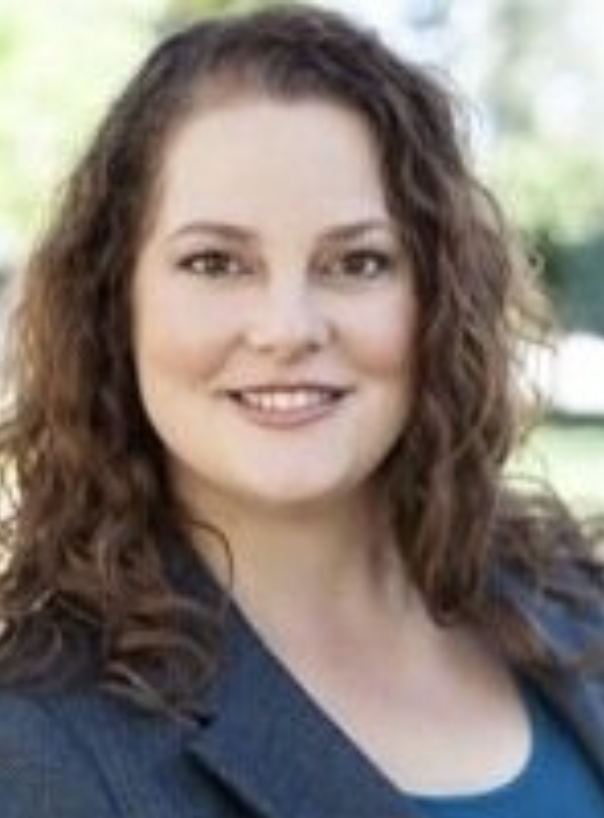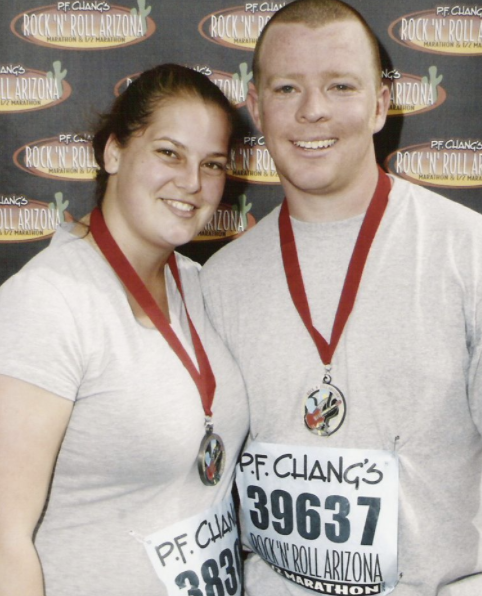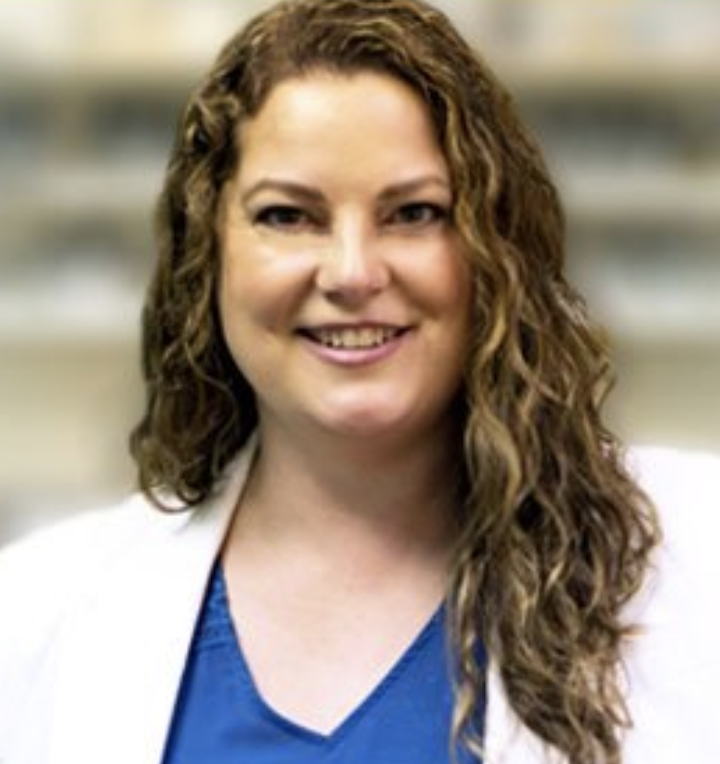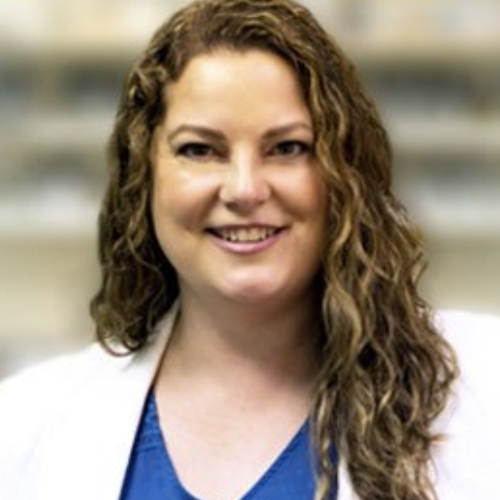Cancer Naturopathic Doctor & Spousal Caregiver – Heather’s Story

There’s this sense that you have to pick sides. It’s like you have to pick between chemo or naturopathic medicine. That’s just not true. It’s totally false.
You can use the best of both worlds at the same time to help how you feel during your treatments, overall health, and to help reduce risk of recurrence. You don’t have to choose sides.
Dr. Heather Paulson, MD, FABNO
You have to pick the right remedies for the right thing. Not all things are good with all chemotherapies or radiation.
You have to be discerning and work with someone who knows about it.
- Name: Dr. Heather Paulson, MD, FABNO
- Role: Naturopathic oncologist & wife of lymphoma survivor
- Experience: ~15 years
- Approach with patients: Personal and empathetic, uses own experiences as a caregiver to relate
- Being a Cancer Caregiver
- Processing your husband's lymphoma diagnosis
- Describe your caregiver role
- How did you handle the balance of being involved and backing off
- Where did you support your husband the most
- Managing your own emotions
- Transition back to spouse-only relationship after treatment
- Your support system
- Advice for people who want to help but don’t know how
- Tips for someone who’s about to step into a caregiver role
- Naturopathic Oncology
This interview has been edited for clarity. This is not medical advice. Please consult with your healthcare provider for treatment decisions.
Being a Cancer Caregiver
Processing your husband’s lymphoma diagnosis
When my husband was first diagnosed, I was in my first year of medical school. I was actually in my first quarter. At the time, I was feeling chaotic and desperate for answers and information, especially on young adult cancer. We were only 25.
I was grateful to land on the Livestrong website. We connected with groups like Stupid Cancer. That’s where I learned about sperm freezing and things like that because his oncologist didn’t talk to him about reproductive health or anything like that.
My dad had been through cancer, and I decided to go into naturopathic medicine because of the gaps in care I saw in his experience.
His eventual death from colorectal cancer is what put me on the path I’ve been on.
When my husband was diagnosed, I was in transition from marine biology to becoming a naturopathic doctor. I felt really anxious to start throwing a bunch of supplements and stuff at him.
I also felt a lot of uncertainty because I was like, “What if we go the naturopathic route and it doesn’t make a difference?”
Describe your caregiver role
My husband was very clear when he was diagnosed that he wanted me to be his partner and not his doctor. So, I respected that, and we hired a good integrative team to support him through treatment.
When I stepped into that caregiver role, it was really just about surrendering to whatever he needed.
How did you handle the balance of being involved and backing off
The way that I handled that was just making sure that he was seeing the right experts. I made sure we trusted his team.
Then I had to just let go of the reins.
I would also be present at some of his appointments. He asked me to not show up to all of his appointments at one point, and I think that was him taking charge of his own health. I would send him with questions that I wanted answered though, and he would ask those for me.
We had schedules for him to stick to for supplements and smoothies and things. We posted it on the refrigerator, and he would just check off boxes when he did things throughout the day.
That gave me a sense of peace. We had a nonverbal sheet we could communicate through without making our whole life about his cancer care.
Where did you support your husband the most
The way I supported him the most was being someone to hang out with.
He was inpatient for five days in a row for his chemo treatments. That was super isolating for him. I moved to Arizona for medical school, and he had moved in with me. We had only been there for 12 weeks, and we didn’t really have a support system here.
Having someone to hang out, play video games, watch tv with and stuff was big for him. I would stay overnight in the hospital with him. It was just important for me to be present and be there for him.

Managing your own emotions
I wish that I had done more. In hindsight, there are research studies that show that the caregivers are the ones who have more PTSD from cancer treatment than the patients sometimes.
They think it’s because we’re observing everything. When my husband was getting his treatments, he would be so out of it on Benadryl. He has less memory of everything than I do.
At the time, I didn’t really seek emotional support. I had my friends who I had met in medical school. They were supporting me and helping me get through school. That was one of my main focuses. I was like, “I just need to get through this exam. I just need to get through school.”
I wasn’t really focused on the emotional side of things. Neither of us were really. We were focused on putting one foot in front of the other.
You get blessed by being able to focus on the next thing coming up, but then we both noticed that when treatment was over, we had this emotional whiplash of things we hadn’t processed.
Once you step out of the day-to-day treatments and appointments, a lot of the emotions from everything start coming through. We both had a hard time processing and talking about them.
Transition back to spouse-only relationship after treatment
I took the backseat and let Phil guide what was right for him. We started focusing on healthy behaviors and ways we could be healthy together.
One of the things he wanted to do was run a half marathon. We started training together and did a half marathon four or five months after treatment ended.
We transitioned from doing things related to cancer together to starting to jog with our dog and run together. We started some health-promoting activities.
Your support system
Surprisingly, our prior support system didn’t pan out. Because we were so young, our friends didn’t know how to show up. Think to your mid-20’s, and you’ll remember.
People don’t know how to make a meal train or drop by. Most of our friends live in California, too, so it was just hard.
It was definitely a shock to both of us that they didn’t show up. I don’t blame them. I didn’t at the time either. I realized they didn’t know how to react or what to say.
One weekend, two of our friends from college flew out with their wives, and that was a highlight, but that was the only time friends showed up like that. It was really the two of us.
My friends in medical school who were looking at becoming doctors were more available to show up for us, so we started making some really deep friendships right away with some of them. That’s really where the support came from.
Advice for people who want to help but don’t know how
It’s important to know that showing up with your normal life and talking about normal things is what any cancer patient wants or needs from you.
It’s not anything special. You don’t need to be a superhero. Calling and asking how things are going, talking about your life, and stuff like that is totally acceptable. That’s really all that’s expected.
Tips for someone who’s about to step into a caregiver role
Seek emotional support as soon as possible.
Make an appointment with your social worker through your cancer center as soon as possible. Be proactive about that because in the moment, you don’t feel like it’s necessary, but you do.

Naturopathic Oncology
Experience as an naturopathic doctor
My title is Dr. Heather Paulson, ND, FABNO. I’ve been practicing naturopathic oncology since 2007.
In terms of experience and background, I did a two-year naturopathic oncology residency at a general hospital in Indiana as part of their cancer care team.
We had daily team meetings where we talked about our patients and how each member could help the patients coming through. It was a really neat model, and I wish more patients had access to oncology teams practicing medicine that way.
Applying your experience as a caregiver to your work
My husband was the first person I got to see reap the benefits of naturopathic medicine when it’s used alongside chemotherapy. The side effects that he experienced were very minimal even with his treatment being very intense.
I got to see the benefit of what I was studying at the time, so it really put things in perspective. It pushed me to keep going and really push to get the residency. I’m grateful for that.
I get the whirlwind of information that’s hitting you when you’ve just heard the diagnosis. Having that experience just makes me more empathetic as a doctor. I know when I was on the other side of the desk, having a healthcare provider who showed empathy shifted our entire day.
Naturopathic remedies used through your husband’s treatment
Phil’s biggest side effects were fatigue and mouth sores. We noticed that using the supplements and some IV treatments really helped him.
His medical oncologist would always be so excited when he saw us. He’d say, “Oh, good! One of the healthy ones! You’re doing so well through treatment.” He was still feeling a little bit more draggy than usual, but he did relatively well.
One of the things he used during treatment that helps reduce mouth sores, neuropathy, and muscle wasting is L-glutamine.
The other thing that he really helped was vitamin C. He recommends IV vitamin C to other cancer patients even today. It really helped to give him energy. He would be cleaning the garage and doing all this stuff after having his IV vitamin C.
Message about naturopathic oncology
There’s this sense that you have to pick sides. It’s like you have to pick between chemo or naturopathic medicine. That’s just not true. It’s totally false.
You can use the best of both worlds at the same time to help how you feel during your treatments, overall health, and to help reduce risk of recurrence. You don’t have to choose sides.
There are tons of studies out there on ways to reduce chemo-induced nausea using acupuncture, ginger, and all kinds of natural substances that are done in large hospital settings. For the skeptics out there, I would just say look at PubMed and look at the studies.
That being said, you have to pick the right remedies for the right thing. Not all things are good with all chemotherapies or radiation. You have to be discerning and work with someone who knows about it.
If you’d like more information on naturopathic oncology, feel free to click the link below. Heather’s Website
No shortCode found
